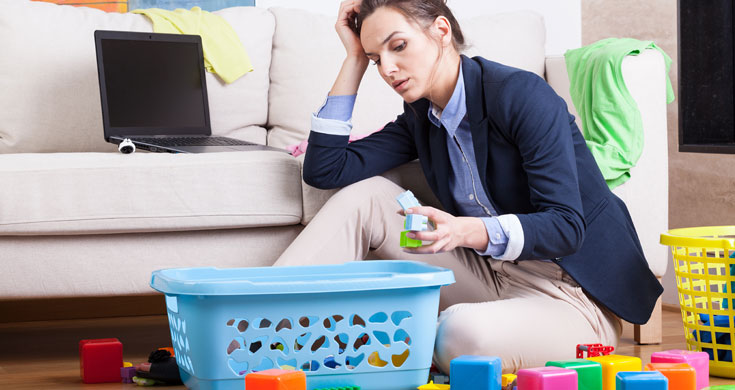According to a recent study, it doesn’t necessary follow that having more kids causes more stress. In fact, research now purports to prove the opposite.
A study of 7,164 participants sponsored by TODAY Parents concluded that mothers of three children have higher stress levels than those with four or more children. In the survey, mothers were asked to rate their stress levels on a scale of 1-10, with 10 being the highest level. According to the results, mothers with three kids revealed that they had the highest stress levels of any group.
Why More Kids Can Mean Less Stress
While these results might seem surprising, according to psychotherapist and author Dr. Kelley Kitley, parents of larger families actually reap several major stress-relieving benefits, such as sibling bonding and teamwork. In larger families, kids not only entertain each other, they also lighten the load when it comes to responsibilities, housework, and emotional support. In bigger families, siblings tend to look out for one another, which in turn can relieve parental stress and duties.
In the survey, moms of one or two children reported significantly lower levels of stress than moms with three kids. Parents and psychologists agree: the addition of a third child can make things more difficult to control, as the household balance is thrown into a number that, for some parents, is overwhelming. According to Jill Smokler, bestselling author and mother of three, even something as simple as crossing the street is more stressful, because you don’t have enough hands to hold onto a third child.
The results from the TODAY Parents study tally with research from other countries as well. According to a 2016 study from Norway, children who grow up with larger families tend to have fewer mental problems—a result that indicates they were raised with lower stress levels. In this study, researchers concluded that the more siblings a child has (and the closer in age they are), the less stress they’ll have in the home.
Other Stress Factors for Mothers
The TODAY Parents survey also identified several major stress triggers for mothers. One of the biggest, according to 60 percent of participants, is the lack of time that mothers have to do everything required. Interestingly, the survey also revealed that 72 percent of mothers say that they worry about why they’re so stressed out.
According to these results, many of the prime causes of stress aren’t directly related to the kids at all. This tallies with another recent survey, which revealed that parents aren’t stressed out by their children so much as by related factors such as the high cost of child care, the lack of paid sick leave, and inadequate work schedule flexibility for parents.
Other takeaways from the study include:
• Nearly half the mothers surveyed–46 percent—feel that their spouse/partner creates more stress than their kids do.
• More than half the mothers—60 percent—say that it’s more stressful to raise girls than to raise boys.
• Nine out of ten mothers are stressed about staying attractive and fit.
What Mothers Can Do to Handle Stress
According to psychiatrists, mom stress is extremely common; and one of the biggest contributors is the lack of time that mothers have to take care of their own needs. Toward this end, psychologist and author Kathleen Kendall-Tackett, Ph.D., suggests that mothers should take at least 15 to 20 minutes a day of “me” time to relax and de-stress themselves.
Other ways to reduce stress include tried-and true relaxation methods such as taking a hot bath, meditating, exercising or doing yoga, or simply sitting down with a cup of tea and a good book. In addition, experts recommend taking breaks to rewind whenever it’s feasible.
One thing all the experts agree on: The less stress in the home, the happier everyone will be. By doing whatever it takes to de-stress your household, you’ll not only be helping yourself to enjoy a healthier life; you’ll be helping your entire family as well.





































